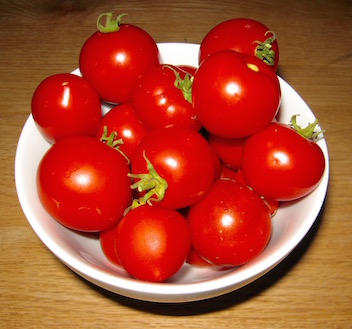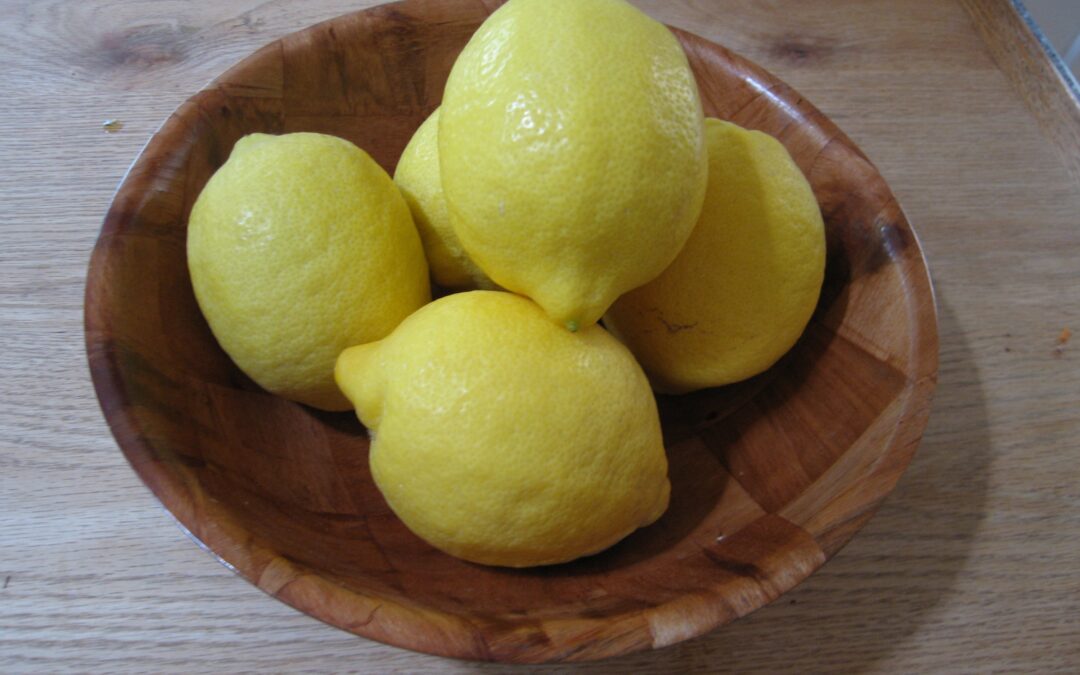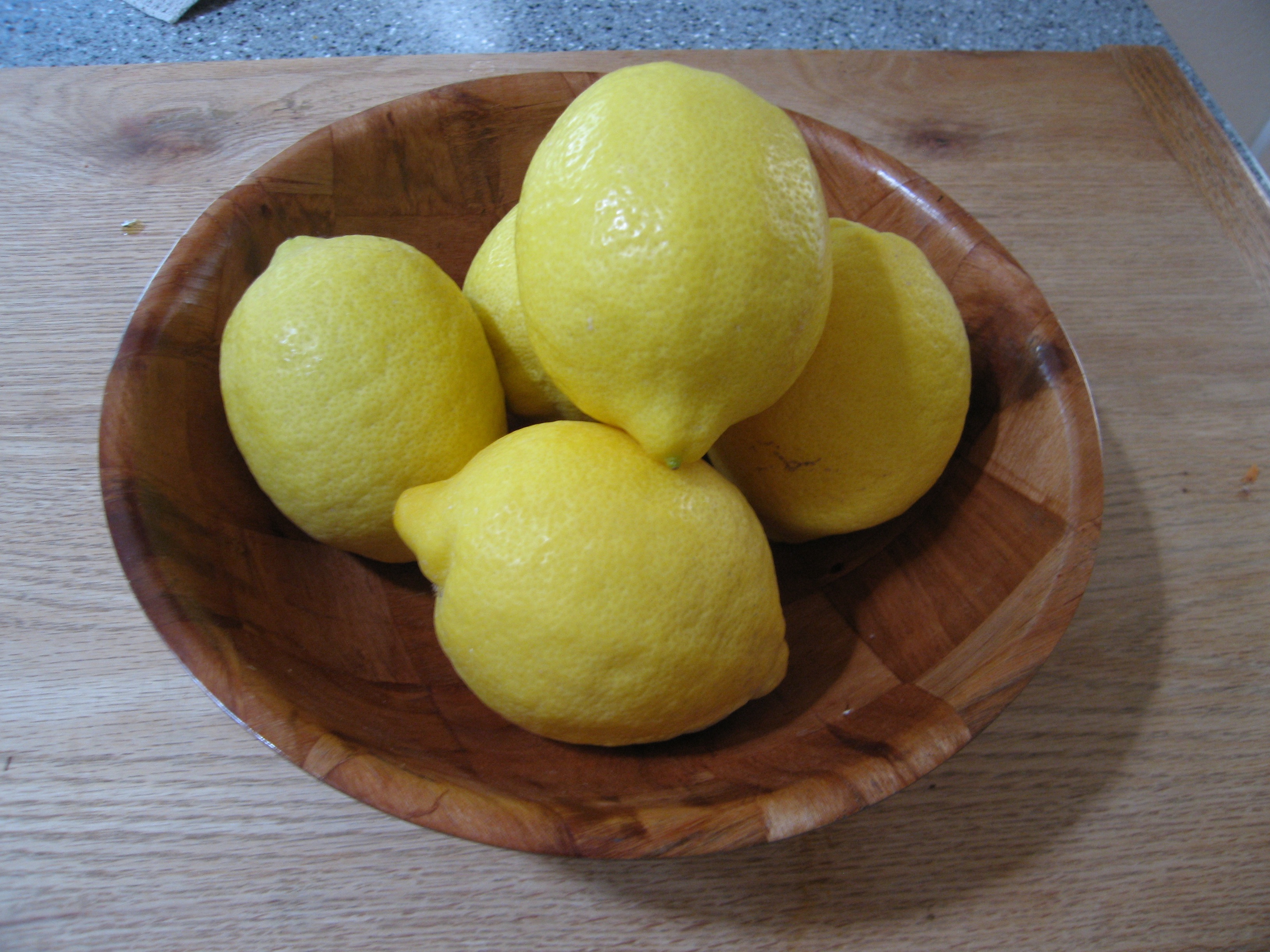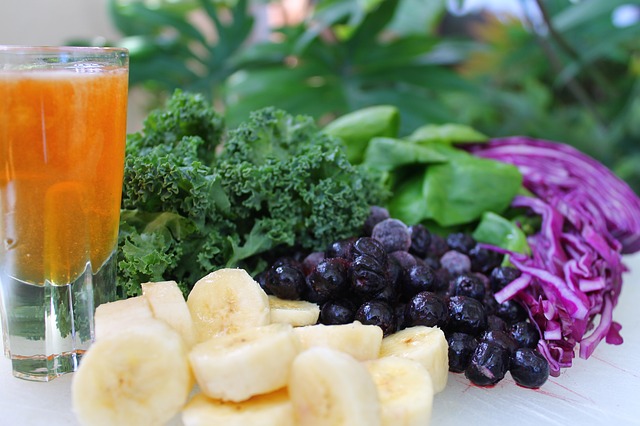
by plant4health | Oct 15, 2015 | cancer, Healing, Nutrition, Organic, Plant-based, Recipes, Vegan, WFPB, Whole food, Whole food, plant-based
 Eating a variety of whole plant-based foods is essential for healing and maintaining excellent health. Science is now discovering that some foods, when eaten together, increase the effects of their individual nutrients, providing even greater health benefits. This is called food synergy. Last month I wrote about lemons. Today, it’s all about tomatoes.
Eating a variety of whole plant-based foods is essential for healing and maintaining excellent health. Science is now discovering that some foods, when eaten together, increase the effects of their individual nutrients, providing even greater health benefits. This is called food synergy. Last month I wrote about lemons. Today, it’s all about tomatoes.
It’s well known that tomatoes are an excellent source of antioxidants: beta-carotene, vitamin E, and vitamin C. But did you know that they are also rich in potassium and a very good source of copper, manganese, dietary fiber, vitamin B6, folate, niacin, and phosphorus? And have you heard that tomato peels contain all four major carotenoids that help protect your body from cancer? When tomatoes are cooked, the lycopene (one of the major carotenoids that lowers the risk of cardiovascular disease and certain cancers) becomes even more bioavailable, increasing the amount your body can absorb.
What’s even more amazing is that when tomatoes are combined with cruciferous vegetables, avocados or olive oil, a synergistic effect occurs that enables your body to more easily absorb and use those powerful anti-cancer and healing nutrients.
Tomatoes and Cruciferous Vegetables – Individually, tomatoes and cruciferous vegetables (broccoli, cauliflower, cabbage, etc.) contain cancer-fighting properties, each food providing distinctive bioactive compounds that fight cancer in different ways. Research has discovered that, when tomatoes and cruciferous vegetables are combined, cancer fighting properties of each are significantly enhanced as the carotenoids in tomatoes increase the bioactive components found in the vegetables. One study at the University of Illinois focused on the synergistic effect of broccoli and tomatoes. They discovered that the tumor-inhibiting effects are significantly enhanced when broccoli and tomatoes are eaten together. It has also been found that chopping and then heating the vegetables makes the cancer fighting compounds even more active. The cutting process breaks the cells and activates an enzyme that initiates a cellular process that results in increased cancer protection. And, as I mentioned in last month’s Lemon Synergy blog, adding a little lemon juice to broccoli increases that enzyme activity. However, be careful of overcooking cruciferous veggies as it results in decreasing their nutrient power. It’s best to steam or sauté lightly.
Try these simple recipes:
Tomatoes and Avocados or Olive Oil – Science has proven that lycopene is fat soluble. As a result, consuming healthy fats with tomatoes increases your body’s absorption rate of the lycopene. According to a study from Ohio State University, when tomatoes are eaten along with avocados or olive oil, the body’s absorption of lycopene is increased up to 15 times. In addition, in 2000, a study in Free Radical Biology and Medicine revealed that, when people consumed tomato products with extra-virgin olive oil versus sunflower oil, researchers discovered that olive oil raised the antioxidant activity of the lycopene in tomatoes. However, consuming sunflower oil produced no effect.
Try these simple recipes:
- Food.com’s Simple Tomato and Avocado Salad
- Add tomatoes and avocado to your salad or use olive oil in your dressings
- Roast or sauté tomatoes with onion and red bell pepper and a little olive oil, garlic, Italian herbs and sea salt. Once cooked, blend in a food processor or blender until the desired consistency then serve over pasta or your favorite grain. Ta da! You’ve got a delicious, high powered nutritious sauce to go with your meal.
Next time you go grocery shopping, don’t forget your tomatoes.

by plant4health | Sep 17, 2015 | cancer, Healing, Nutrition, Plant-based, Recipes, Vegan, WFPB, Whole food, Whole food, plant-based
 Last month, I wrote about food synergy, how healing through food is not about obtaining large amounts of any single nutrient, but how whole plant-based foods provides a complex mix of nutrients that work together synergistically within your body to create powerful health benefits we have yet to understand. My next series of blogs are going to take this concept one step further by looking at how specific food combinations enhance the nutrient potency of your meal and the bioavailability of those nutrients.
Last month, I wrote about food synergy, how healing through food is not about obtaining large amounts of any single nutrient, but how whole plant-based foods provides a complex mix of nutrients that work together synergistically within your body to create powerful health benefits we have yet to understand. My next series of blogs are going to take this concept one step further by looking at how specific food combinations enhance the nutrient potency of your meal and the bioavailability of those nutrients.
Today, I’m going to focus on lemons. On their own, lemons contain many nutrients that boost the immune system and fight infection: citric acid, calcium, magnesium, Vitamin C, bioflavonoids, pectin, and limonene. They provide strong antibacterial and antiviral properties, as well as act as a digestive aid and liver cleanser. Lemons are also alkaline which helps balance your body’s pH, protecting you from inflammation and disease. When eaten with specific other foods, lemons are a wonderful example of food synergy as they enhance nutrient absorption and potency. Take a look at these powerful food combinations: (more…)

by plant4health | Aug 20, 2015 | cancer, Healing, Nutrition, Plant-based, Vegan, WFPB, Whole food
 Food Synergy describes the way whole food, when consumed, provides a complex mixture of nutrients that work together in combination with your body to create powerful health benefits.
Food Synergy describes the way whole food, when consumed, provides a complex mixture of nutrients that work together in combination with your body to create powerful health benefits.
I’ve been learning a lot about the important role food synergy plays in our health. We’ve been taught that healthy eating is an easily solved mathematical calculation – simply consume the amount of nutrients based on the FDA’s % of Daily Value. If you prefer to eat foods void in nutrients (such as processed foods) or you dislike veggies, simply take a vitamin. Nutrition has become ‘medicalized’ as we reach for that perfect supplement to “cure what ails you”. The truth is, that’s not enough.
Here’s the problem with the “pill popping” kind of thinking: (more…)

by plant4health | May 21, 2015 | cancer, grocery shopping, Nutrition, Plant-based, Recipes, Vegan, WFPB, Whole food, Whole food, plant-based
 Last week, I was talking with a friend who desperately wants to change her diet but can’t seem to take that first step. According to her doctor, if she doesn’t start making some changes soon, she will be destined for heart disease, stroke, chronic arthritis and/or diabetes as she moves towards her 60s. Over the last few years, she’s gained a few pounds, begun experiencing chronic joint pain, and is battling fatigue as she tries to maintain the high energy her busy lifestyle demands. She went to the doctor thinking her symptoms were signaling the beginning of menopause that hormone therapy might ease, only to learn that she is in the “high risk” category for the most popular illnesses that lead to death and disability in the United States.
Last week, I was talking with a friend who desperately wants to change her diet but can’t seem to take that first step. According to her doctor, if she doesn’t start making some changes soon, she will be destined for heart disease, stroke, chronic arthritis and/or diabetes as she moves towards her 60s. Over the last few years, she’s gained a few pounds, begun experiencing chronic joint pain, and is battling fatigue as she tries to maintain the high energy her busy lifestyle demands. She went to the doctor thinking her symptoms were signaling the beginning of menopause that hormone therapy might ease, only to learn that she is in the “high risk” category for the most popular illnesses that lead to death and disability in the United States.
My friend is not obese nor is she a junk food addict. Actually, before this wake up call, she thought she was living a pretty healthy lifestyle; she always eats a salad with meals, orders whole grains and organic meat when dining out, avoids all fast-foods, and always declines the pastries and sweets offered at business meetings and parties. However, the hidden fats, carbs, salt and sugar from the foods she has been eating, combined with her limited amount of exercise was starting to take its toll.
(more…)
![Transitioning to Vegan One Step at a Time]()
by plant4health | Feb 12, 2015 | Nutrition, Plant-based, Whole food

Take it one step at a time.
An acquaintance asked me the other day, “Don’t you miss eating normal food? I could never eat such a restrictive diet,” her expression filled with a mix of indignation and curiosity.
We all have our different reasons for why we eat what we eat. Some of us use food as a way to find comfort (fresh baked cookies to cure the blues), while others luxuriate in the physical pleasure of experiencing exotic flavors and textures. There are those that focus on what they can’t eat in order to avoid an allergic reaction or lose those unwanted extra pounds. Food choices are emotional decisions, a way to fill the void when we are feeling lonely or insecure, or as a reward to celebrate an accomplishment.
Just like all the different ways we choose what we eat, there are many ways to be vegan. The interpretations range in extremes from advocating animal rights, to eating imitation meat and dairy replacers in order to hold onto the familiar, to the exclusion of all but raw organic whole foods. For me, being vegan is about consciously choosing what I eat, focusing on foods rich in nutrients that will support my body and its healing process. (more…)

 Eating a variety of whole plant-based foods is essential for healing and maintaining excellent health. Science is now discovering that some foods, when eaten together, increase the effects of their individual nutrients, providing even greater health benefits. This is called food synergy. Last month I wrote about lemons. Today, it’s all about tomatoes.
Eating a variety of whole plant-based foods is essential for healing and maintaining excellent health. Science is now discovering that some foods, when eaten together, increase the effects of their individual nutrients, providing even greater health benefits. This is called food synergy. Last month I wrote about lemons. Today, it’s all about tomatoes.





